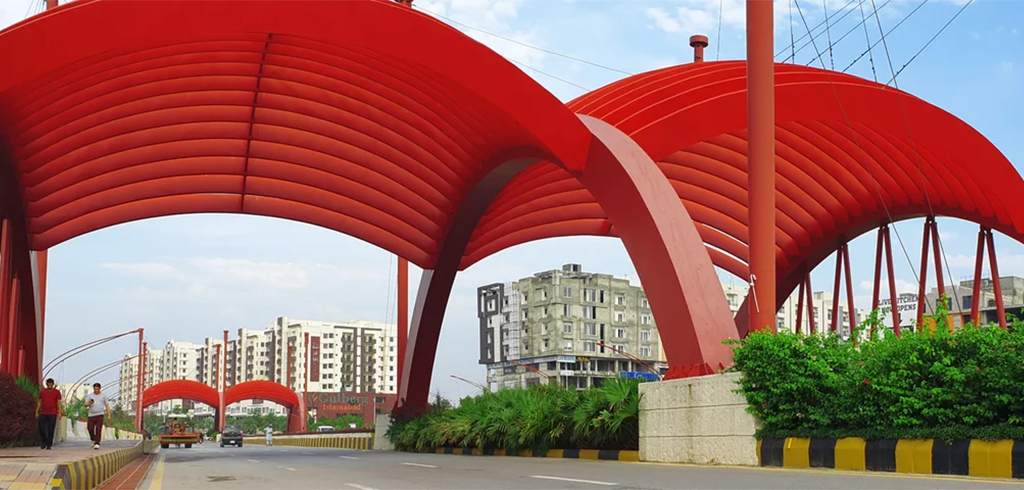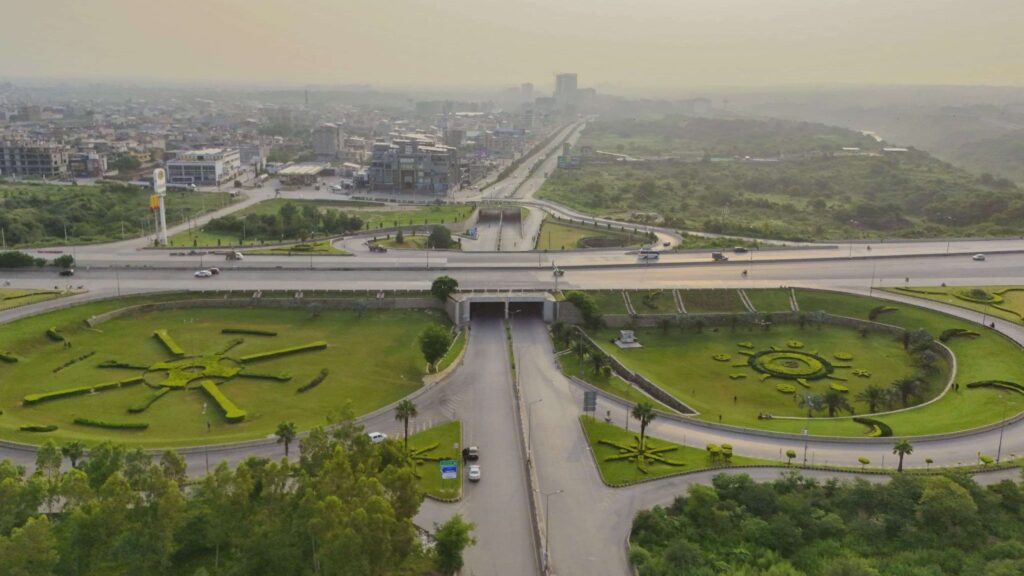Buying property is more than just picking a plot. It’s about timing, infrastructure, and long-term value. Many buyers overlook plot turnover and infrastructure delivery. But these two factors can make or break an investment.
A delayed turnover means your money is stuck. Poor infrastructure lowers property value. That’s why understanding the process is key. You need to know when you’ll get possession and what’s being developed around it. Roads, utilities, and amenities matter just as much as the location.
In this guide, we’ll break down what plot turnover really means. We’ll cover the risks of slow infrastructure and how to spot red flags before investing. Whether you’re buying for resale, rental income, or future living, this guide will help you make a smart decision. Let’s dive in.
Understanding the Plot Turnover Process
Plot turnover is when ownership of a plot officially shifts from the developer to the buyer. It sounds simple, but the process can be tricky. Delays, missing paperwork, or unfinished infrastructure can slow things down.
Here’s how it should work:
- Final Payments & Paperwork – You clear any outstanding dues. The developer prepares the ownership documents.
- Inspection & Approval—You check the plot. Is it ready? Are utilities in place? If yes, you give the green light.
- Legal Handover—The developer transfers ownership. You get possession, plus official documents.
- Registration & Taxes—You register the plot in your name and pay any required fees.
Sounds easy, right? Not always. Many buyers face delays due to incomplete infrastructure, legal disputes, or developer mismanagement.
Here’s how to protect yourself:
- Get timelines in writing because Verbal promises mean nothing.
- Check infrastructure progress, such as roads, electricity, and water, which should be in place before
- Verify legal clearance and make sure the plot has no legal issues.
- Inspect before accepting and never sign off on a plot without checking it first.
A smooth plot turnover is more than luck; it’s about being informed. Know the process, ask the right questions, and avoid costly mistakes.
Infrastructure Delivery in Real Estate: What It Means for Buyers

A plot is just land. Infrastructure makes it livable. Roads, utilities, and public services decide how much that land is really worth.
Think about it—who wants a plot with no water, electricity, or proper roads? No one. That’s why infrastructure defines property value. A well-developed area attracts buyers, businesses, and higher resale prices. An underdeveloped one? It stays stagnant.
Here’s what really matters:
- Roads & Access—A plot with poor connectivity loses value fast. Wide, paved roads are a must.
- Electricity & Water—No power, no water? No deal. These should be available from day one.
- Sewage & Drainage—Flooded streets and clogged drains? A nightmare for homeowners and investors.
- Public Amenities—Schools, hospitals, parks, and markets bring people. And people bring demand.
Now, here’s the problem—many developers promise infrastructure but deliver late—sometimes very late. That delays plot turnover and locks your investment. However, some projects, like Gulberg Islamabad, have gained a reputation for steady infrastructure development and strategic growth. Learn why it’s a standout choice in our guide on Investment in Islamabad: Why Gulberg Stands Out for Real Estate Growth.
What can you do?
- Visit the site. Don’t rely only on brochures or fancy master plans. See it for yourself.
- Ask for deadlines in writing. No written commitment? Walk away.
- Talk to existing buyers. They’ll tell you what’s really happening.
Plot Delivery Timeline: What to Expect
Plot handover isn’t always smooth. Some buyers get possession within months, while others wait for years. It all depends on the project’s progress, infrastructure readiness, and how efficiently the developer manages things.
One major factor is the development stage. If you buy a plot in a pre-launch phase, be prepared for a long wait. Developers first secure approvals, start groundwork, and then move to construction. This process alone can take a few years.
On the other hand, plots in ongoing projects usually have a clearer timeline, often ranging from one to three years. The fastest option is a fully developed plot, where you can get possession within months.
Infrastructure is another key element. Roads, electricity, and water supply must be in place before handover. If these are incomplete, expect delays. Many developers promise quick turnovers, but without proper infrastructure, possession means nothing.
Legal approvals also play a big role. If a project faces clearance issues, the handover gets stuck indefinitely.
Reputable developers manage turnover in phases. They hand over plots in completed sections while finishing the rest. Some even provide updates on construction milestones to keep buyers informed. However, delays still happen, so it’s important to do your research.
Always check a developer’s past projects, visit the site, and get a written timeline. A well-planned investment saves you from unexpected setbacks.
Construction Delays in Real Estate: Common Causes & Solutions

Delays in real estate projects can be frustrating. You invest your money, plan ahead, and then—nothing. The handover keeps getting pushed back. Here’s why it happens and what you can do about it.
Common Causes of Delays
- Regulatory Approvals – Developers need clearance from multiple government authorities. If paperwork gets stuck, construction stops.
- Financial Issues – Some developers run out of funds, especially if sales are slow or loans are delayed.
- Labour Shortages – Construction depends on skilled workers. If there aren’t enough, everything slows down.
- Supply Chain Disruptions – A shortage of key materials like cement or steel can bring work to a halt.
- Weather Conditions – Heavy rains or extreme weather can delay construction timelines significantly.
How Buyers Can Track Progress
- Visit the Site – Don’t just rely on developer updates. Check your progress yourself.
- Join Buyer Groups – Many investors form online forums to track project status.
- Request Written Timelines – Always get commitments in writing. A verbal promise means nothing.
- Check Government Portals – Some authorities provide updates on approved and delayed projects.
What to Do If Your Handover Is Delayed
- Review Your Contract—Check if there’s a penalty clause for late delivery.
- Demand Updates—Keep pressure on the developer through calls, emails, or legal notices.
- Consider Legal Action – If delays stretch too long, buyers can file complaints or seek compensation.
Gulberg Islamabad: Infrastructure & Development Updates
Gulberg Residencia is a massive project by IBECHS, covering over 19,000 kanals in Zone V, Islamabad. Development is moving fast. By early 2025, around 370 owners had started construction. About 100 families have already moved in. With steady progress, this community is shaping up to be a prime spot for investors and future homeowners. If you’re considering investing in a thriving area, Gulberg Islamabad is a rising real estate marvel.
Gulberg Islamabad Security: Safe & Secure Living
Security is a top priority here. The community is gated and under 24/7 CCTV surveillance. Over 500 security personnel are on duty to keep the area safe. With strict monitoring and controlled access, residents can enjoy peace of mind.
Modern City Planning: Smart & Sustainable
Gulberg Islamabad is built for the future. Everything is planned to be efficient and sustainable. Underground systems manage electricity, gas, water, drainage, and telecom services. The community also has water filtration and sewerage treatment plants. This makes it a model for urban development in Pakistan.
Residential & Commercial Infrastructure: Well-Connected & Convenient
The roads are wide and well-maintained, ensuring smooth traffic flow. Underground utilities keep the surroundings neat and reduce outages. Parks, shopping centres, and recreational spots add to the appeal. Whether for living or business, Gulberg Islamabad offers a modern and well-equipped environment.
How to Overcome Property Handover Issues
Dealing with delays in property handovers can be stressful. But taking the right steps can help you protect your investment and avoid unnecessary frustration.
Tips for Buyers Dealing with Delays
- Stay in constant contact – Regularly follow up with the developer and demand clear timelines.
- Visit the site – Check progress firsthand instead of relying solely on updates.
- Join buyer groups – Connect with other investors to share information and explore legal options.
Importance of Legal Documentation and Agreements
- Always review your contract before purchasing. Look for clauses on late handover penalties.
- Ensure that the agreement clearly states the handover date and any compensation for delays.
- If delays extend beyond a reasonable timeframe, consult a real estate lawyer to understand your rights.
Role of Real Estate Agencies in Resolving Handover Concerns
- A good agency guides you through the buying process and ensures transparency.
- They mediate between buyers and developers to push for faster handovers.
- Some agencies assist in legal claims or negotiations if the developer fails to meet obligations.
Buying property is not only about owning land but about making smart investments. If the plot turnover is slow or the infrastructure isn’t ready, your money and time are at risk. That’s why understanding the process is so important. Stay informed, keep track of progress, and don’t ignore legal paperwork.
Want a smooth handover? Double-check project timelines, visit the site often, and stay in touch with the developer. A good real estate agency can also help you avoid headaches.
Looking for a solid investment? Gulberg Islamabad is a great choice. With top security, modern infrastructure, and smart city planning, it’s built for the future. A well-planned community means better value, fewer surprises, and long-term peace of mind.











